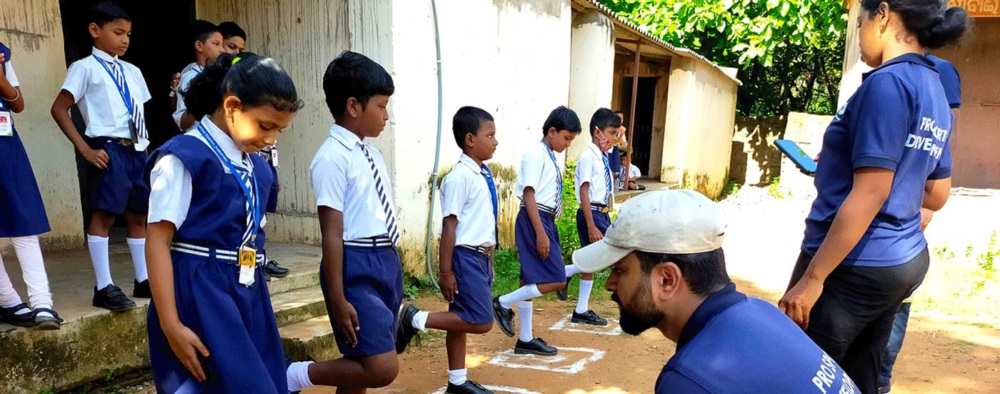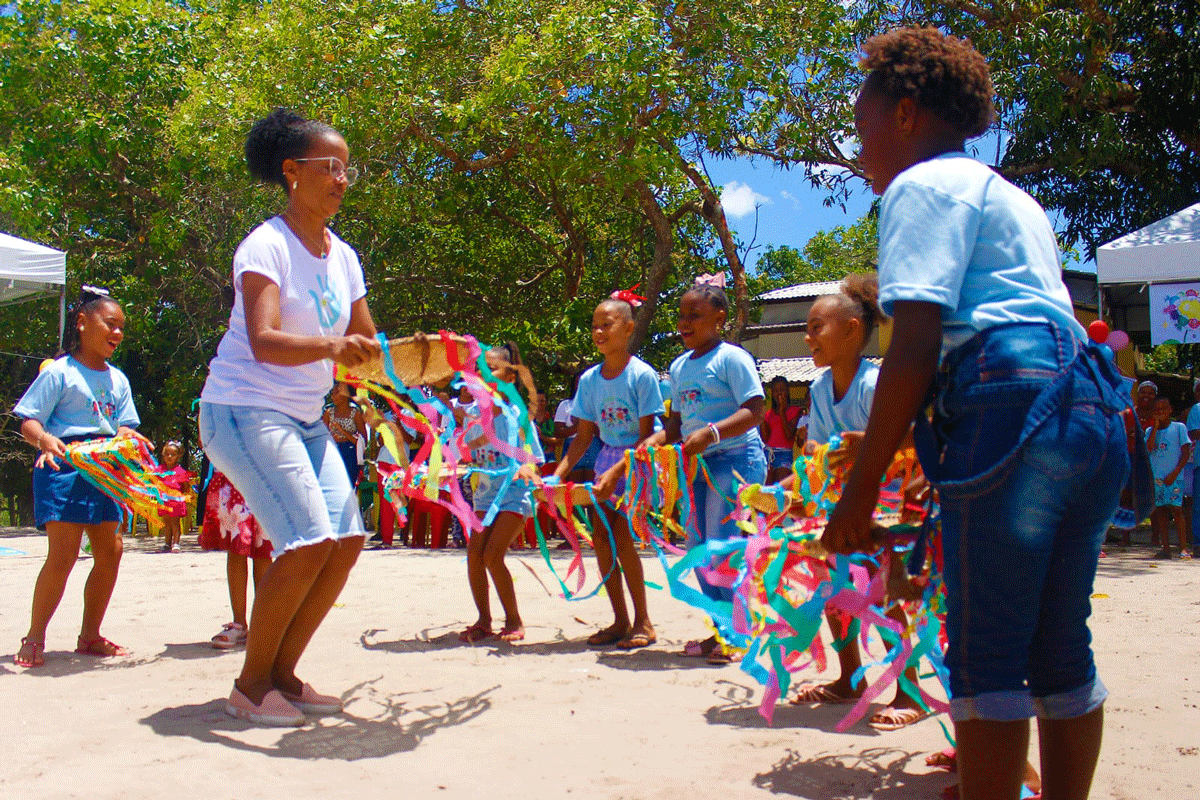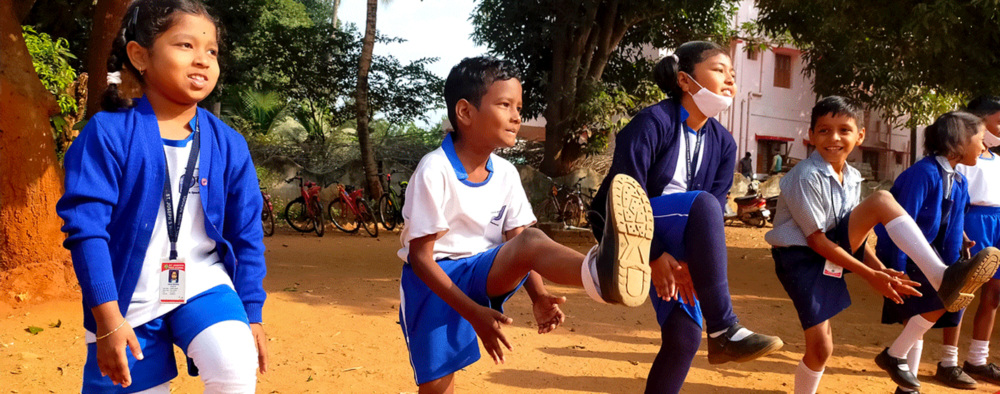
Educação
Educação
Em 2022, com o apoio da Fundação LEGO, o Fundo Global para as Crianças lançou o Parceria para educar todas as crianças Iniciativa (PEAK) para apoiar organizações comunitárias que estão ajudando crianças que sofreram interrupções educacionais relacionadas à pandemia a acessar e prosperar em ambientes de aprendizagem que as preparam para o sucesso futuro.
A pandemia da COVID-19 exacerbou as desigualdades existentes e teve um impacto profundo na aprendizagem das crianças. Os efeitos da pandemia foram particularmente devastadores em países de baixa e média renda na América Latina, Sul da Ásia e África Subsaariana, onde a iniciativa PEAK está focada. As taxas de analfabetismo nessas regiões são significativamente mais altas do que antes da pandemia, com mais de três quartos das crianças não sabem ler na idade em que normalmente terminariam o ensino fundamental.
Para identificar parceiros para a iniciativa, a GFC pesquisou mais de 350 organizações, visitou 145 e selecionou 66 em 10 países – Bangladesh, Brasil, Colômbia, Gana, Guatemala, Índia, Quênia, Nepal, Uganda e Zâmbia – como parceiros PEAK. As organizações selecionadas estão ajudando crianças a se reajustarem ao aprendizado presencial, conter a perda de aprendizado e adquirir habilidades que as capacitarão a se tornarem aprendizes criativos ao longo da vida em um mundo pós-pandemia.
[image_caption caption=”Uma exibição de drama na celebração do Dia Mundial da Criança da Young Visionary Leaders Ghana. © Young Visionary Leaders Ghana” float=””]
 [/imagem_legenda]
[/imagem_legenda]
Nós fornecemos aos parceiros PEAK financiamento flexível central, desenvolvimento de capacidade e oportunidades para networking e colaboração regional entre parceiros. Os parceiros PEAK realizam trabalhos diversos em suas comunidades e usam o financiamento GFC para uma ampla gama de atividades para ajudar as crianças a se engajarem novamente no aprendizado e na brincadeira.
Na região Nordeste do Brasil, por exemplo, o parceiro PEAK Instituto Mãe Lalu emprega canções infantis tradicionais e danças circulares para impulsionar o aprendizado e transmitir conhecimentos ancestrais.
Jovens Líderes Visionários Gana está envolvendo crianças em competições de debate e clubes escolares para desenvolver suas habilidades de falar em público e advocacy e fomentar o amor pelo aprendizado.
Alguns parceiros do PEAK no Sul da Ásia estão a motivar as crianças a aprender através do esporte. Na Índia, Desenvolvimento de Esportes Profissionais usa uma variedade de esportes como uma ferramenta para o desenvolvimento holístico de crianças e jovens, particularmente aqueles de comunidades marginalizadas. No Nepal rural, Atoot desenvolve a confiança, as habilidades de liderança e o trabalho em equipe das meninas por meio do futebol.
À medida que a iniciativa PEAK completa um ano, refletimos sobre o que aprendemos ao implementar este modelo alternativo para programação relacionada ao ensino primário:
[image_caption caption=”Crianças dançando e brincando durante evento do Instituto Mãe Lalu chamado I Ciranda Literarte. © Instituto Mãe Lalu” float=””]
 [/imagem_legenda]
[/imagem_legenda]
No segundo ano da iniciativa, a GFC desembolsará quase $1 milhões em subsídios primários para parceiros PEAK, juntamente com suporte contínuo ao desenvolvimento organizacional. Para expandir e aprofundar as redes, estamos planejando três convenções regionais e também ofereceremos subsídios de colaboração para trocas de aprendizagem, atividades conjuntas ou outras colaborações criativas entre parceiros PEAK em todas as regiões.
O GFC e os parceiros do PEAK estão mergulhando neste segundo ano da iniciativa com energia, entusiasmo e criatividade para aprender enquanto fazem – ou melhor, enquanto brincam.
Foto do cabeçalho: Alunos da St. Joseph's High School em Jokalandi, Bhubaneswar, Índia, aquecendo antes de uma sessão. © Pro Sport Development.
